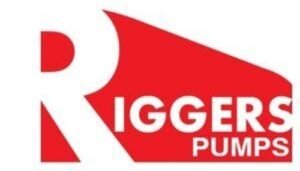The future of the commercial vehicle washing business in India looks promising due to several factors that are driving growth and innovation in this industry. With increasing environmental concerns, a rise in the number of vehicles on the road, and advancements in technology, the vehicle washing sector is undergoing significant changes. Here are key factors shaping its future:
1. Rising Vehicle Population
- Increased Commercial Vehicles: The demand for commercial vehicles, including trucks, buses, and delivery vehicles, continues to grow with the expansion of industries like logistics, e-commerce, and construction. This directly increases the need for regular vehicle washing and maintenance services.
- Fleet Maintenance: Large fleet operators are increasingly focused on maintaining clean vehicles for better operational efficiency and compliance with safety standards, driving the demand for specialized commercial vehicle washing services.
2. Government Regulations and Environmental Compliance
- Stringent Environmental Regulations: The government is increasingly enforcing environmental regulations to curb water wastage and control pollution. The vehicle washing industry is adapting by adopting water recycling systems and eco-friendly washing solutions.
- Mandates for Cleanliness in Certain Sectors: Industries like mining, construction, and waste management, where vehicles get exposed to extreme dirt and debris, are being required to maintain high standards of vehicle cleanliness, which further boosts demand for commercial washing solutions.
3. Technological Advancements
- Automation and Innovation: Automated vehicle washing systems are becoming more common in India. These systems improve efficiency by reducing labor costs and increasing the speed and consistency of washing. Drive-through and automated truck washing stations are expected to become more popular.
- Water Recycling Systems: Due to increasing water scarcity in many parts of India, water-efficient and recycling systems will play a crucial role in the future. Advanced filtration systems that recycle water and use eco-friendly cleaning agents are becoming a necessity in modern vehicle washing businesses.
- App-Based Service Platforms: The rise of mobile apps and online platforms offering vehicle washing services could see growth in India’s urban areas, making it easier for commercial vehicle operators to schedule cleaning services on demand.
4. Environmental Sustainability Trends
- Eco-Friendly Solutions: Growing awareness of the environmental impact of vehicle washing is leading to the adoption of biodegradable cleaning agents and waterless washing technologies, which are expected to become more mainstream in the future.
- Renewable Energy Integration: Solar-powered vehicle washing stations, especially in regions with abundant sunlight like southern India, can reduce the operational costs and environmental footprint of commercial vehicle washing businesses.
5. Growth of Organized Sector
- Emergence of Organized Chains: The shift from unorganized, manual washing setups to organized vehicle wash chains is already evident. This trend is likely to continue, with organized businesses offering standardized services, better technology, and consistent quality.
- Franchising Opportunities: As the commercial vehicle washing business becomes more organized, there are growing opportunities for franchising. Entrepreneurs can capitalize on brand recognition and pre-existing systems, leading to expansion in tier-2 and tier-3 cities.
6. Urbanization and Infrastructure Development
- Increased Urbanization: As cities expand and urbanization accelerates, the demand for commercial vehicle washing services will rise. Urban centers with high vehicle density will create strong markets for car and truck washing services.
- Development of Logistics Hubs: The growth of logistics hubs and industrial parks across India, particularly with the government’s push for better infrastructure, will drive demand for dedicated truck and heavy-duty vehicle washing facilities.
7. Demand from Specialized Sectors
- Mining and Heavy Industry: As industries such as mining, agriculture, and construction grow, the demand for cleaning specialized vehicles, including dump trucks and earth-moving equipment, will increase. These vehicles require heavy-duty washing systems that can handle large amounts of grime, dust, and dirt.
- Public Transportation and Ride-Hailing Services: With the increase in bus fleets and ride-hailing services, there will be greater emphasis on maintaining the cleanliness of commercial passenger vehicles, leading to demand for more frequent and efficient washing solutions.
8. Consumer Preference for Cleanliness
- Hygiene and Aesthetics: Post-pandemic awareness of hygiene and cleanliness standards is higher. Fleet operators are more inclined to keep their vehicles clean to ensure the safety of passengers and drivers, which will likely contribute to the growth of the vehicle washing industry.
- Brand Image and Professionalism: Commercial vehicles, especially those used for delivery or public transportation, are an extension of a company’s brand. Clean, well-maintained vehicles enhance the company’s image, encouraging businesses to invest in regular vehicle washing.
9. Rural and Tier-2/3 City Expansion
- Rural Demand: As rural areas develop and infrastructure projects expand, there is potential for growth in vehicle washing services for agricultural vehicles, buses, and transport trucks.
- Penetration in Tier-2/3 Cities: The vehicle washing industry has significant potential in tier-2 and tier-3 cities, where the growth of commercial vehicle fleets is accelerating but organized washing services are still limited.
Challenges and Considerations
- Initial Investment Costs: The setup of modern, automated vehicle washing systems requires significant upfront investment, particularly for water recycling technology. However, these investments can pay off over time through savings in labor, water usage, and faster service turnover.
- Water Scarcity: Water availability will be a challenge, but it also presents an opportunity for businesses to innovate and adopt water-efficient practices, which could become a competitive advantage.
In summary, the future of the commercial vehicle washing business in India is bright, driven by rising demand, technological advancements, and the need for environmentally sustainable solutions. Businesses that adopt automation, water conservation practices, and organized service models will be well-positioned for success in this evolving market.

